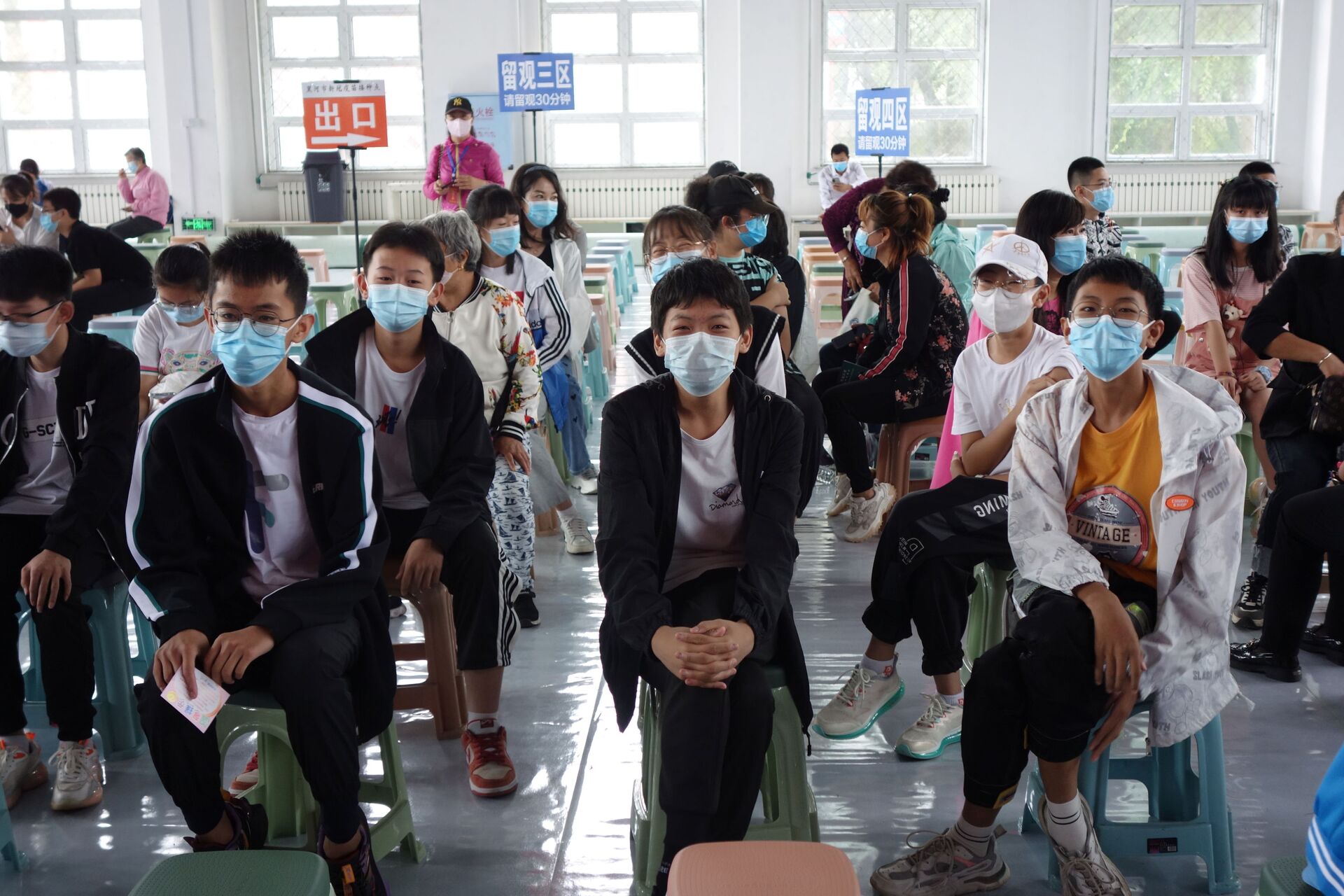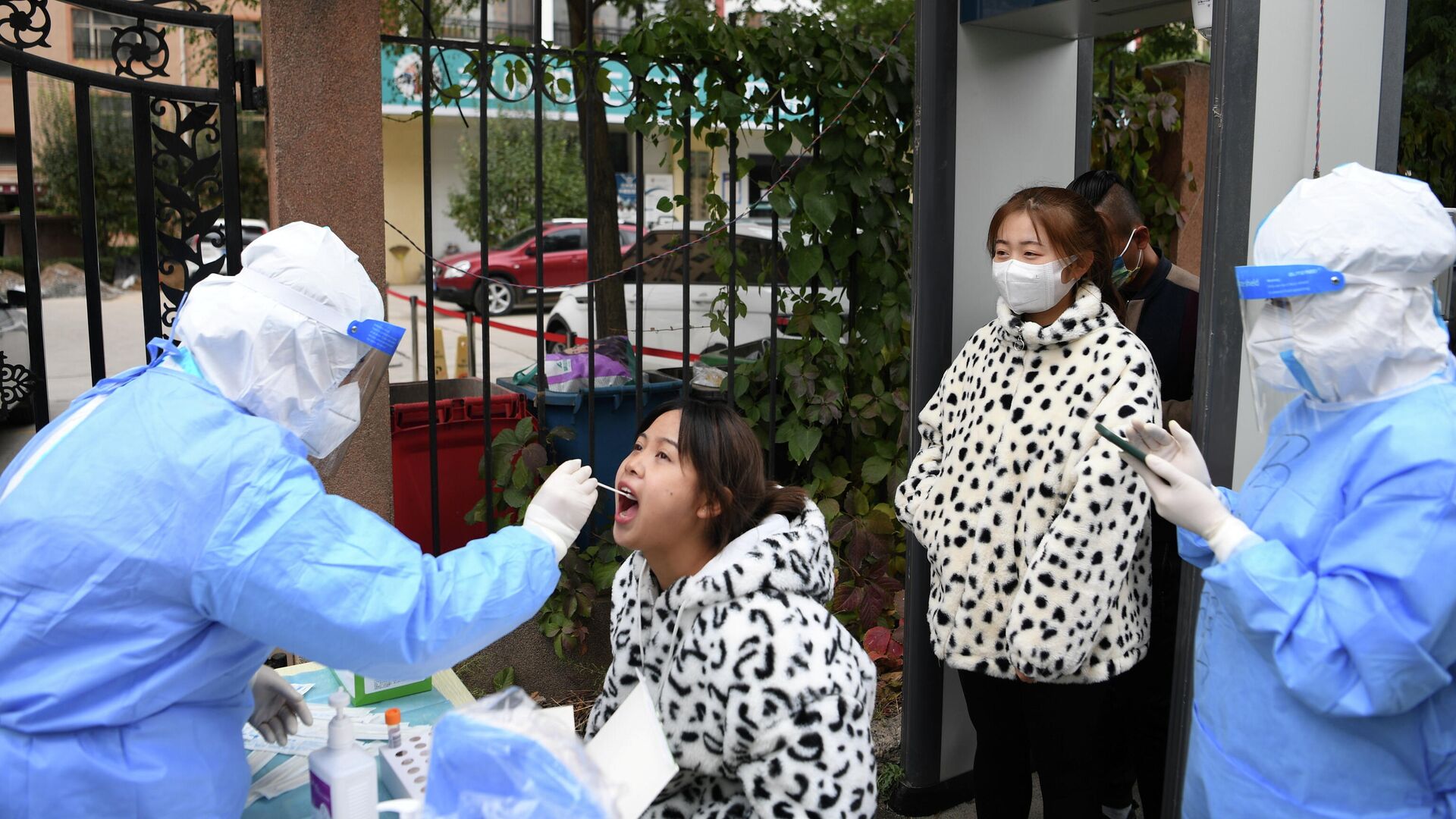China Pushes Vaccination Program Ahead as Lanzhou Placed in Lockdown to Contain New Covid Cases
Subscribe
China has placed a national hub under lockdown amid a new and stubborn spike in COVID-19 cases. Meanwhile, the country’s impressive vaccination rate has slowed, encouraging health officials to further expand those eligible for shots.
On Monday, China’s National Health Commission reported 43 new cases of COVID-19, 14 of which were imported and 29 of which were domestic in origin. Of the domestic cases, 16 were in Inner Mongolia and 15 of those were in the westernmost Alxa League district, which has been a hotbed of cases for several days.
Just six of Monday’s cases were in Lanzhou, the capital of neighboring Gansu Province, but with a total of 39 over the past week, that was enough to push officials into declaring a lockdown in the city of 4 million, barring residents from leaving their homes except for emergencies.
According to the New York Times, medical workers had tested 2.8 million of Lanzhou’s population by Monday evening and 12 million people across Gansu, which has a population of 26 million. The city is a major transit hub between western and central China, with numerous high-speed and regular rail connections to Xinjiang, Inner Mongolia, and points east.
The city had already been in a partial lockdown for nearly a week, slowly increasing the restrictions and requests each day as cases failed to subside. China has a “zero Covid” policy designed to stop small outbreaks from spreading, which over the last few weeks has caused widespread lockdowns and a massive testing operation.
While China was home to the first identified outbreak of COVID-19 in the final days of 2019 and early 2020, the outbreak was contained mostly to Hubei Province and fizzled out by the summer amid a highly successful total lockdown system, during which residents were given food, medicine and other necessities via a massive logistical operation. Since then, outbreaks have been small, picking up noticeably since the summer, when the ultra-transmissive Delta variant of the virus became a worldwide phenomenon.

Residents wait at the observation area during a coronavirus disease (COVID-19) vaccination session for those aged between 12 and 14, in Heihe, Heilongjiang province, China August 3, 2021.
However, an outbreak that started in mid-July was fully contained by late August, having only caused roughly 1,200 cases in that time. By comparison, daily new cases in the United States at that time were topping 180,000, has begun to rise from about 15,000 new cases per day at the same time the outbreak in China began. At the time, vaccination rates in both China and the US were roughly 50% of the population.
China has pushed ahead with its vaccination program, though, and as of Monday had reached 76% of its 1.4 billion people, or 1 billion, 64 million vaccinated, using a number of indigenously developed vaccines. However, now Beijing has reached a new problem: the vaccination rate is slowing, due in part to hesitancy by those who remain unvaccinated.
In a bid to push that number higher, officials in several Chinese provinces have begun vaccinating children between the ages of 3 and 11, the Global Times reported on Tuesday, noting that 91% of the children between the ages of 11 and 17 had been immunized against COVID-19 since July, when the lower age group was opened up for shots.
The South China Morning Post, a Hong Kong-based paper, reported on Tuesday on several cases of vaccine hesitancy, interviewing them on why they didn’t want to get the shot. Some didn’t want to put up with side-effects, which can produce flu-like symptoms, while others simply did not see any pressing need to get vaccinated against a virus the government contains so well.
“I feel vaccination makes little difference for whether I will get COVID-19,” Sun Zhaoyun, a 47-year-old office manager in Beijing, told the paper. “COVID-19 control in China has been very successful, and I have a very low chance of being exposed to it. I seldom catch colds, and am usually fine if my family are down with flu, so I am less worried about getting COVID-19 without vaccination than about being judged and mocked for not being inoculated.”
Zheng Jiajia, 32, who runs a social media platform, told the paper she had more faith in her own meticulous safety practices and immune system than she did in a vaccine.
“I eat a high-protein diet and work out,” she said. “I keep regular working and rest hours to improve my immunity. I have alcoholic sanitiser to hand. When I travel on public transport, I don’t eat, and take off my mask only for an occasional sip of water.”
According to NHC data, the pace of vaccination has fallen from a peak of 24 million shots per day to less than 2 million.
China’s national government has never sanctioned vaccine mandates and the NHC has pushed back against regional or local attempts to introduce them, saying in July that "informed, consented and voluntary” are the most basic principles of a successful public vaccination program. That point was reiterated in August with regards to schools and their students. However, it has championed vaccine passports for international travel.
Instead, the government has tried to convince residents to get vaccinated by a variety of other methods, including offering prizes and lottery entries, waging an education campaign dispelling fears and emphasizing the positives about getting vaccinated.



